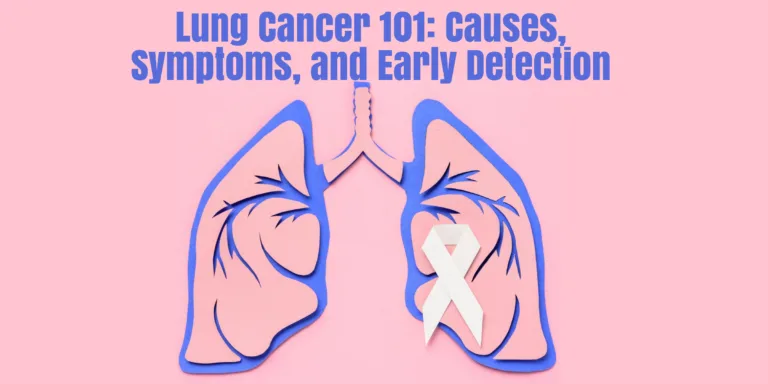Appetite Decrease : Understanding Causes, Symptoms, and When to Seek Help
Losing your appetite can be more than just skipping a meal—it can impact your energy, mood, and overall quality of life. While it’s normal for hunger to fluctuate from time to time, a persistent drop in appetite shouldn’t be ignored.
Whether it’s stress, aging, diet changes, or something more serious, understanding what’s behind a decrease in appetite is the first step toward feeling better.
In this guide, we’ll break down the most common causes, symptoms to watch for, and when it’s time to speak with a healthcare provider. You’ll also get practical tips to gently restore your hunger and support your overall well-being.
This content is for informational purposes only and does not constitute medical advice. A decrease in appetite can result from a wide range of causes—some of which may require prompt medical attention. Always consult a qualified healthcare provider for proper diagnosis and treatment.

What is Appetite Decrease?
Appetite decrease, sometimes referred to as reduced appetite or decreased hunger, is a condition where the usual urge to eat diminishes. While short-term appetite loss is common due to stress or illness, persistent or sudden appetite decrease can interfere with daily nutrition and affect overall health. Appetite decrease can be caused by numerous physical and psychological factors, and addressing it involves identifying and treating these root causes.
Common Causes of Appetite Decrease
Understanding the factors that lead to a reduced appetite is essential for effective management. Some causes may be temporary, while others may require long-term strategies.
Physical Health Conditions

Several medical conditions are known to suppress appetite, including:
- Hormonal Imbalances: Hormonal fluctuations, particularly in thyroid hormones, can impact hunger signals. Hypothyroidism, for instance, may decrease metabolism and appetite.
- Infections and Illnesses: Temporary loss of appetite often accompanies infections like the flu or common cold. Other diseases such as hepatitis, kidney disease, and heart failure can also cause appetite decrease.
- Gastrointestinal Disorders: Conditions like irritable bowel syndrome (IBS), gastritis, and ulcers often lead to reduced hunger due to discomfort after eating.
Read More: How to Start a Workout Routine: 10 Proven Ways to Build Consistency
Mental Health Conditions

- Anxiety and Appetite: Anxiety can greatly reduce appetite. Individuals with high levels of anxiety often experience digestive issues and stomach discomfort, which further reduces appetite.
- Depression: People with depression commonly report decreased hunger, as well as weight loss. Depression affects the brain’s reward system, reducing pleasure from eating and other daily activities.
- Stress: During stressful situations, the body’s fight-or-flight response releases cortisol and adrenaline, which temporarily reduce appetite. If stress persists, appetite may remain low.
Read More: Manage Stress: 7 Effective Techniques to Reduce Daily Tension
Lifestyle Factors

- Dieting and Caloric Restriction: Prolonged calorie restriction can lower metabolism, making the body less responsive to hunger signals.
- Substance Use: Drugs, alcohol, and smoking can all interfere with hunger and appetite regulation. Some medications, like those for blood pressure or pain management, list appetite decrease as a side effect.
- Sedentary Lifestyle: Physical activity stimulates appetite by increasing energy expenditure. A sedentary lifestyle, in contrast, can reduce natural hunger cues.
Symptoms Associated with Appetite Decrease
A decreased appetite might seem straightforward, but it often presents with other signs, including:
- Mood Changes: Lack of food impacts mental well-being, leading to irritability, anxiety, and sometimes even depression.
- Unintended Weight Loss: When the body is not getting enough calories, it begins using fat stores, leading to weight loss.
- Fatigue and Weakness: Insufficient nutrition can lead to low energy and fatigue.
- Digestive Distress: Reduced appetite can sometimes trigger nausea or discomfort after eating.
When to Seek Help for Appetite Decrease
Red Flags Indicating Serious Underlying Conditions
Although a reduced appetite is sometimes temporary, certain symptoms call for immediate medical attention:
- Signs of Malnutrition: Brittle nails, hair loss, or skin changes suggest a nutritional deficiency requiring medical advice.
- Persistent Weight Loss: Rapid or significant weight loss can indicate a serious health issue.
- Ongoing Nausea or Vomiting: If nausea or vomiting accompanies appetite decrease, it could point to a gastrointestinal condition.
- Mood Disorders: Chronic anxiety or depression should be treated promptly, as both significantly impact appetite.
Read More: Green Tea That Helps You Lose Weight: 10 Incredible Benefits You Need to Know!
Talking to a Healthcare Professional
If your appetite remains low despite lifestyle changes, consider consulting a healthcare professional. A doctor may conduct blood tests, assess for any underlying medical conditions, or refer you to a dietitian. They may also suggest psychological counseling if anxiety or depression are suspected contributors.
Practical Tips to Stimulate Appetite

If you’re experiencing reduced appetite, these tips can help stimulate hunger and encourage healthier eating patterns:
Establish a Regular Eating Schedule
Regular mealtimes can help train your body to expect food, which can gradually stimulate hunger signals.
Choose Nutrient-Dense Foods
Opt for calorie-dense yet nutritious foods like nuts, seeds, and avocados. These provide essential nutrients even in smaller portions.
Read More: Balanced Nutrition: The Complete Guide to a Healthier Lifestyle
Small, Frequent Meals
Instead of large meals, try eating small portions every few hours to avoid overwhelming your stomach and still meet nutritional needs.
Add Appetite-Stimulating Herbs and Spices
Some herbs, like ginger, peppermint, and fennel, are known to stimulate the appetite. Adding them to your meals can make food more appealing.
Case Study: How One Individual Managed Appetite Decrease Due to Anxiety
Sarah, a 34-year-old marketing professional, experienced a drastic appetite decrease during a particularly stressful period. She initially dismissed it, attributing it to temporary stress, but as her weight dropped and fatigue increased, she sought professional help. A counselor helped her manage anxiety, while a dietitian suggested nutrient-dense foods. Over time, Sarah’s appetite returned as her anxiety became more manageable.
Appetite Decrease and Its Long-Term Effects
Prolonged appetite decrease can lead to health issues, including malnutrition, weakened immune function, and muscle loss. For individuals experiencing long-term decreased hunger, even small, regular adjustments to diet and lifestyle can make a significant difference. A balanced approach with professional guidance can prevent negative health outcomes and ensure adequate nutrition.
Conclusion: Recognizing and Addressing Appetite Decrease
A drop in appetite can sneak up on you—and while it’s often nothing serious, it’s your body’s way of signaling that something might be off. Whether it’s stress, illness, or just a shift in lifestyle, tuning in to those changes is an important step toward feeling better.
If your appetite doesn’t bounce back, don’t ignore it. Talk to a healthcare professional, and don’t hesitate to make small, manageable changes in your routine. Simple things like mindful eating, gentle movement, or adjusting your meal timing can make a big difference over time.
Remember, your appetite is more than just hunger—it’s a reflection of your overall well-being. Take care of it, and you’ll be taking care of your whole self.
FAQ
Q1: What causes a sudden decrease in appetite?
A sudden decrease in appetite can result from various factors, including stress, illness, certain medications, and changes in hormone levels. Physical conditions, like infections or digestive issues, and mental health factors, like anxiety and depression, can also impact appetite. If you notice a persistent or sudden drop in appetite, it’s a good idea to consult with a healthcare professional.
Q2: Can anxiety reduce appetite?
Yes, anxiety can reduce appetite. High levels of stress and anxiety activate the body’s fight-or-flight response, which diverts energy from digestion, leading to a decrease in hunger. People experiencing anxiety often report digestive discomfort, which further discourages eating.
Q3: How do I know if my appetite decrease is a serious concern?
If your appetite decrease is accompanied by symptoms such as unexplained weight loss, nausea, fatigue, mood changes, or signs of malnutrition (like brittle nails or hair loss), it may be a sign of a serious health condition. Seek medical advice if these symptoms persist.
Q4: What can I eat to stimulate my appetite?
Certain foods and herbs can help stimulate appetite naturally. Nutrient-dense options like nuts, avocados, and small portions of protein-rich foods are excellent choices. Appetite-stimulating herbs like ginger, peppermint, and fennel can also be helpful.
Q5: Can a decreased appetite lead to malnutrition?
Yes, if a decreased appetite leads to insufficient calorie or nutrient intake, it can result in malnutrition. This condition can weaken the immune system, reduce energy levels, and impact overall health. Seeking advice from a healthcare provider or dietitian can help prevent malnutrition if appetite issues persist.
Q6: What are some effective lifestyle changes to manage decreased appetite?
To help manage decreased appetite, consider small but consistent meals, establishing a regular eating schedule, incorporating nutrient-dense foods, and staying physically active to stimulate hunger naturally. If anxiety or stress is a factor, relaxation techniques or counseling may help.
Q7: When should I see a doctor about decreased appetite?
Consult a doctor if you experience persistent appetite loss that affects your daily nutrition, leads to unintentional weight loss, or includes symptoms like nausea, fatigue, or emotional distress. These could be signs of underlying health issues that require medical attention.






